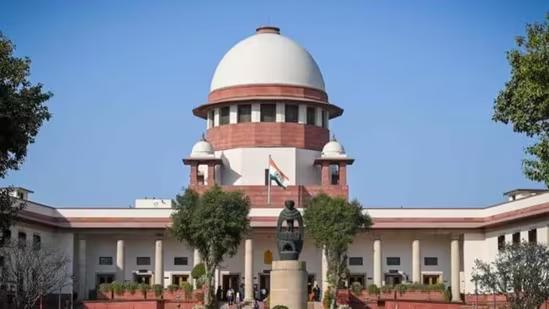
Court Can’t Grant Assent to Bills, Only Gov & Prez Can: Maha to SC
The ongoing debate on the role of the judiciary in the legislative process took a new turn as the Maharashtra government argued in the Supreme Court that courts cannot accord assent to bills and only the Governor and the President have that constitutional power. Senior advocate Harish Salve, representing Maharashtra, made this statement during the hearing of a presidential reference on whether the court could impose timelines for the Governor and the President to deal with bills passed by state assemblies.
In a significant development, the Maharashtra government’s stance is likely to have far-reaching implications on the relationship between the judiciary and the executive, as well as the functioning of the legislative process. The argument is based on the principle of separation of powers, which is enshrined in the Indian Constitution.
The presidential reference was made by the President of India, Ram Nath Kovind, in 2019, seeking the court’s guidance on whether the Governor and the President have the power to withhold assent to bills passed by state assemblies or the Lok Sabha. The reference was triggered by a controversy surrounding the passage of the Maharashtra State Land Revenue Code (Amendment) Bill, 2019, which was signed into law by the then-Governor of Maharashtra, Ch. Vidyasagar Rao, despite protests from the Opposition.
The Maharashtra government’s argument is that the court cannot accord assent to bills, as it is a function that is exclusively reserved for the Governor and the President. Salve, representing the government, contended that the court’s role is limited to interpreting the Constitution and the laws, and not to intervene in the legislative process.
The court’s role is limited to interpreting the Constitution and the laws, and not to intervene in the legislative process.
The Maharashtra government’s stance is supported by Article 114 of the Constitution, which states that the President shall have the power to assent to bills passed by the Parliament, while Article 200 of the Constitution gives the Governor similar powers to assent to bills passed by the state assemblies. The government’s argument is that the court cannot usurp these powers and accord assent to bills, as it would be a violation of the principle of separation of powers.
The Opposition, on the other hand, has argued that the court has the power to impose timelines on the Governor and the President to deal with bills passed by the state assemblies or the Lok Sabha. They contend that the court’s intervention is necessary to ensure that the legislative process is not stalled due to inaction by the executive.
The presidential reference has sparked a heated debate among legal experts and political commentators, with some arguing that the court’s intervention is necessary to maintain the balance between the different branches of government, while others believe that the court’s role should be limited to interpreting the Constitution and the laws.
The outcome of the presidential reference is likely to have significant implications for the functioning of the legislative process in the country. If the court rules that it has the power to impose timelines on the Governor and the President, it could lead to a significant increase in the court’s intervention in the legislative process. On the other hand, if the court rules that the Governor and the President have the exclusive power to accord assent to bills, it could lead to a decrease in the court’s intervention in the legislative process.
In conclusion, the Maharashtra government’s argument that the court cannot accord assent to bills and only the Governor and the President have that power is a significant development in the ongoing debate on the role of the judiciary in the legislative process. The outcome of the presidential reference is likely to have far-reaching implications for the functioning of the legislative process in the country and will be closely watched by legal experts and political commentators.






